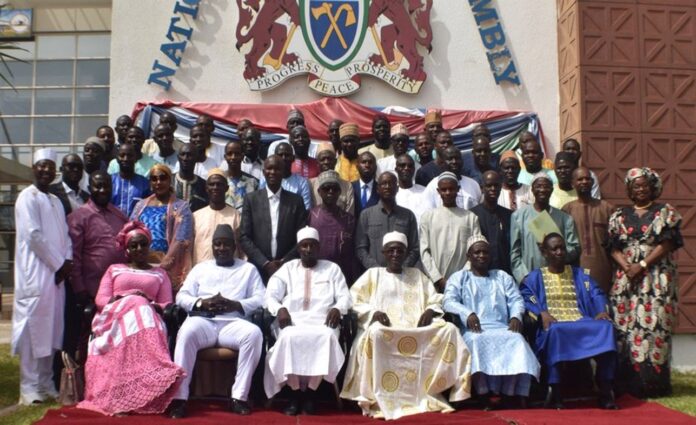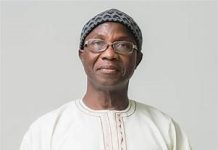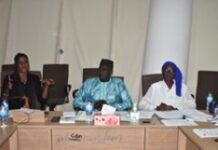By: Kebba AF Touray
The National Assembly Service has successfully performed the first phase of the induction training for members of the Sixth Legislature in Banjul from Wednesday 11th to Friday 14th May 2022.
The program aims to build the capacity of lawmakers in the execution of their legislative, oversight and representative functions.
The training designed by the office of the Clerk aimed to provide knowledge and opportunities for discussion to optimize the performance of the National Assembly Members during their five-year tenure, 2022-2027.
This first phase of the training accorded lawmakers the opportunity to explore the international workings of the National Assembly through hands-on information from the three divisions under the Office of the Clerk – Legal and Procedural Matters; Administration and Finance, and Legislative Business and Program.
The Clerk of the National Assembly, Momodou A Sise, said during the session that the training was customary, organized at the start of every new legislature to strengthen the role of Parliament.
He underscored that parliamentary career is the most complex and challenging ventures on earth, as it entails competing demands from the house, party and constituency, making the works and lives of the legislators a challenging act to balance.
“Members are always on the job, whether walking the halls of parliament, interviewing an expert witness regarding a proposed legislative amendment, or travelling abroad.
“It is obvious that parliamentarians preside over the making of laws for the good of society and serve as the epic oversight institution of the Republic. Therefore, it is important that the capacity of incoming Hon. Members is built along technical and professional legal lines,” Clerk Sise said.
He commended key development partners for the tremendous efforts they rendered to strengthen the capacity of the National Assembly without which much of the achievements would have not been possible.
He recognized the support, assistance, and continuous encouragement of the IRI, WFD, International IDEA and UNDP, who have always partnered with the National Assembly to build the capacity of both staff and members.
The Speaker of the National Assembly, Fabakary Tombong Jatta, told members of the parliament that the training was the beginning of many more training programs to come.
He informed the members of the numerous works that lay ahead of them, with immediate focus on setting the committees in motion and all other institutional arrangements.
“We must also ensure that the program of the National Assembly is designed to effectively do the oversight, monitoring, and evaluation of government departments. We also need to give serious attention to the ways in which members interact with the public and we must rededicate ourselves to the true meaning of keeping the doors of the Assembly open,” he noted.
Speaker Jatta spoke highly of the induction for detailing the rules of procedure, committee oversight activities, and the powers and privileges of the National Assembly Members. He urged the lawmakers to play active roles as representatives of the people, relying on the insights from the training.
The UNDP Resident Representative in The Gambia, Aissata De, expressed delight in supporting the National Assembly in holding the induction with one of the world’s most comprehensive parliamentary strengthening programs.
She said UNDP has strengthened the capacities of numerous parliamentary, including parliamentary administrations around the world to effectively legislate and provide oversight functions in representing citizens.
She highlighted that over the past years, UNDP has provided support to the National Assembly focusing on key areas such as professional development of members of the parliament and staff of the Service.
She said the office also furnished the Assembly Chamber with digital devices to provide transcripts of parliamentary debates and supported the initiation of the 2021 National Assembly Service Act.
The UNDP Resident Representative observed the need for societal mobilization for the achievement of the Sustainable Development Goals to integrate and localize into the Gambian National Development Plan.
“The National Assembly is the core of representative democracy and is central to the realization of the social sustainable development,” she said.
She stressed that transparent and inclusive institutions are keys to the achievement of all seventeen Sustainable Development goals, and that the attainment of the global agenda also requires local actions in every country with the National Assembly as a powerful agent for change.
“It is by ratifying international agreements, adopting laws that respond to the Gambia’s development priorities and monitoring their implementation while keeping the government to account that the national assembly drives that change,” she said.
She utilized the event to encourage the members of the Sixth Legislature to play a crucial role in shaping the Gambia’s national development policies and laws that advance human development and accelerate progress towards the achievement of the Sustainable Development Goals.



















